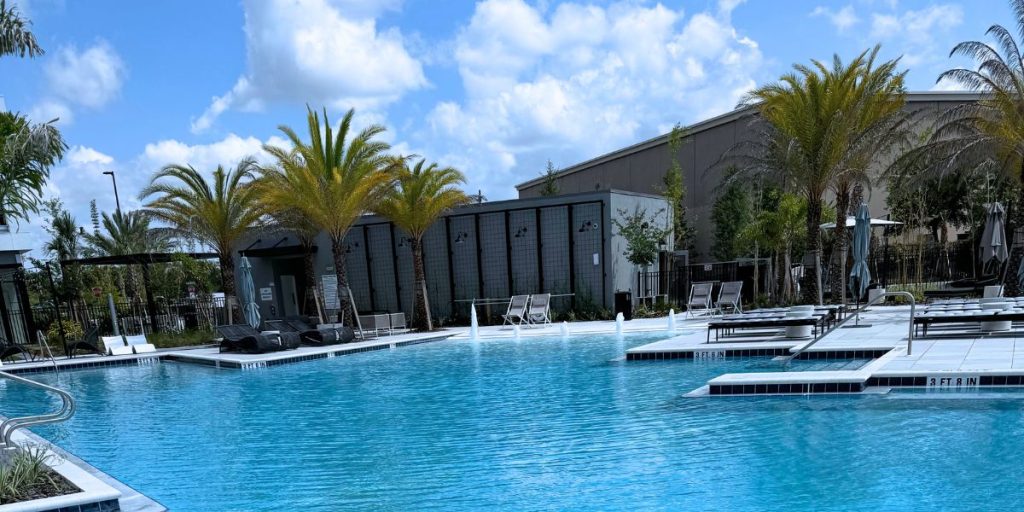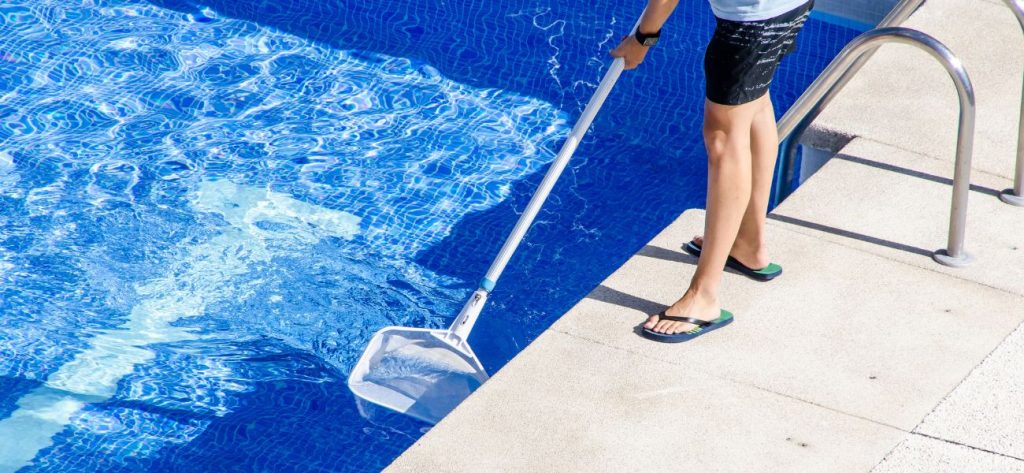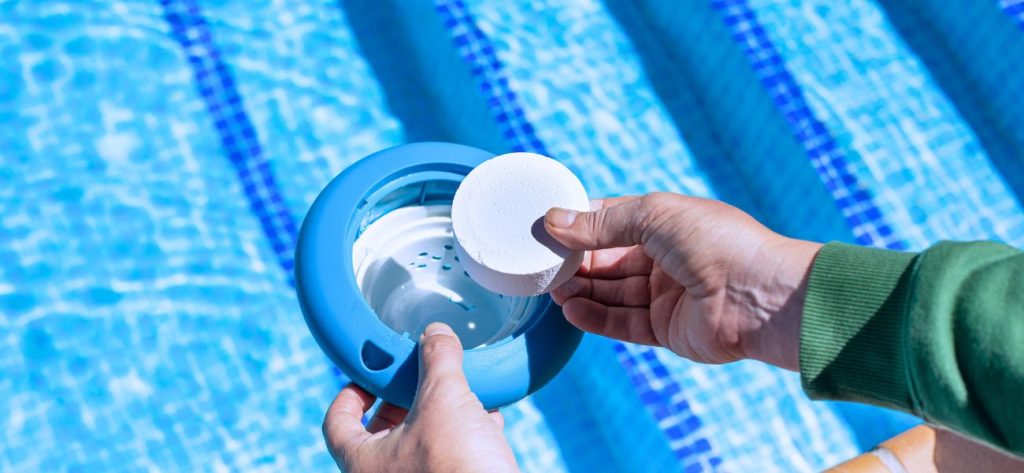Did you know that up to 25% more pool water evaporates in Florida than in other states due to extreme heat? (Source: Florida Swimming Pool Association, 2023). The scorching sun, humidity, and high temperatures not only increase maintenance costs but can also damage the structure and chemistry of the water.
In this article, we explain the best strategies to protect your pool from the sun and reduce evaporation, from specialized covers to natural shades.
Why is evaporation a serious problem in Florida?
Florida has a subtropical climate, with temperatures exceeding 90°F (32°C) much of the year. According to studies, the average pool in the state can lose up to 2 inches of water per week due to evaporation alone (USGS, 2022). This not only increases the cost of refilling the water, but also:
- Unbalances chemical levels (increasing pH and calcium hardness).
- Increases the consumption of chlorine and other products.
- Damages the liner and structure due to sudden changes in the water level.
“A well-protected pool is like a treasure: take care of it today to enjoy it tomorrow without worries.”
3 Effective solutions to reduce evaporation
- Using pool covers can be an effective measure.
Covers are the #1 solution against evaporation, reducing water loss by up to 95% (U.S. Department of Energy). In Florida, the most recommended covers are:
-
- Solar (bubble): They trap heat and minimize evaporation.
- Automatic: Ideal for large pools, with remote opening.
- Mesh: They slow evaporation and block leaves and debris.
💡 Pro Tip: A dark cover absorbs more heat, keeping the water warm on cool nights.
- Use Anti-Evaporation Liquids
Evaporation reducers are chemicals that form an invisible layer over the water, reducing heat loss and saving on pool refill costs.
-
- Advantages: Easy to apply, effective immediately, and compatible with saline pools.
- Disadvantage: Require reapplication every 1-2 weeks.
📌 Key Fact: According to the Florida Pool & Spa Association, these products can reduce evaporation by 30% to 50%.
- Natural and Artificial Shades Provide Passive Cooling
Vegetation and shade structures not only provide protection from the sun but also reduce water temperature. Some options:
- Palm trees and evergreens (prevent excessive leaf fall).
- Pergolas or retractable awnings (adjustable protection).
- Vines on trellises (natural shade + tropical design).
⚠️ Caution: Avoid trees with invasive roots near the pool.
Bonus: Other strategies to minimize the sun’s impact
- Adjust your filtration schedule (morning or evening to avoid peak heat).
- Use a pool chiller if the water is over 90°F.
- Monitor chemical levels 2-3 times per week in the summer.
Are you losing a lot of water? Check for leaks:
- Filtration system gaskets, valves, and connections (common wear and tear).
- Skimmers and pump (check seals and connections).
- Liner or tile for cracks.
- Underground pipes if there is mud or moisture around them.
Conclusion: Less evaporation, more savings, and less stress
Using a heater keeps your pool water at the right temperature year-round, but it can also accelerate the rate of evaporation.
Although the water evaporation process is beneficial to the environment, it comes at a cost to you. Therefore, protecting your pool from the sun in Florida isn’t a luxury; it’s a necessity. With covers, specialized liquids, and strategic shade, you can save up to $500 a year in water and chemicals.
“The Florida sun never sets… but your pool can always be ready for enjoyment.”
📢 Need professional help?
At Pool Cleanliness Solution, we offer specialized pool maintenance in Florida, from cover installation to anti-evaporation treatments. Contact us today and protect your investment.



